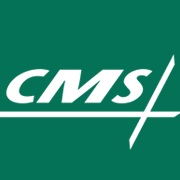17 Health Payers Participating in CMS Oncology Care Model
The Oncology Care Model aligns with the goals of the federal agency to move the healthcare delivery system around the country to adhere with value-based care and quality.

- The Centers for Medicare & Medicaid Services (CMS) is implementing a new payment and healthcare delivery system called the Oncology Care Model. This particular reimbursement program will involve multi-payer arrangements in which healthcare providers are responsible for performance and financial means during episodes of care much like within bundled payments. The Oncology Care Model (OCM) specifically targets chemotherapy administration to cancer patients.

CMS released a fact sheet last year outlining the five-year Oncology Care Model, which is expected to improve care coordination and bring providers to reduce the costs associated with cancer treatment. With more than 1.6 million Americans diagnosed with cancer every year and a majority Medicare beneficiaries, CMS has begun partnering with oncologists and commercial health plans to ensure better quality of care at lower costs among cancer patients.
The Oncology Care Model aligns with the goals of the federal agency to move the healthcare delivery system around the country to adhere with value-based care and quality instead of quantity of services seen with the traditional fee-for-service (FFS) payment models.
Much like bundled payment programs, the Oncology Care Model operates on an episode of care system and is reimbursed based on performance. Financial incentives based around ensuring the right care for their patients involve the reduction of healthcare spending, CMS states in its fact sheet.
“OCM-FFS will use a two-part payment approach for participating oncology practices, creating incentives to improve the quality of care and furnish enhanced services for beneficiaries undergoing chemotherapy treatment for a cancer diagnosis,” the fact sheet stated. “These two forms of payment include: 1) a monthly $160 per-beneficiary care management payment for Medicare FFS beneficiaries; 2) a performance-based payment for OCM episodes.”
This particular model of care will involve the chemotherapy treatment of cancer patients as well as other services given within a six-month period of a Medicare beneficiary beginning chemotherapy.
The Department of Health & Human Services (HHS) announced in a press release today that it has selected approximately 200 physician group practices and 17 health insurers to take part in the Oncology Care Model. This will be a program that tracks treatment for 155,000 Medicare beneficiaries, HHS stated.
“CMS is thrilled with how many physician groups chose to be a part of the Oncology Care Model,” Patrick Conway, M.D., CMS Principal Deputy Administrator and Chief Medical Officer, said in a public statement.
“We have nearly doubled the number of participants that we anticipated. It’s clear that oncology physicians recognize the importance of this new performance-based, episode-based payment approach to cancer care. As a practicing physician and son of a Medicare beneficiary who died from cancer, I know the importance of well-coordinated care focused on the patient’s needs.”
This model of care will begin on July 1, 2016 and continue for five years. If it shows promise and garners cost reductions, it is possible for CMS to expand the program among more medical practices and health payers.
It is hoped that the Oncology Care Model will encourage physicians to boost the quality of care and reduce spending “through episodic and performance-based payments.” Physicians will need to follow nationally-recognized clinical guidelines for cancer treatment with a closer aim toward patient-centered care.
“The Oncology Care Model encourages greater collaboration and information sharing so that cancer patients get the care they need,” Secretary Sylvia M. Burwell stated in the press release. “This patient-centered care model furthers the goal of the Vice President’s Cancer Moonshot to improve coordination, care, and outcomes while spending dollars more wisely.”
This includes coordinating appointments within the oncology department as well as with providers outside this realm, ensuring healthcare access 24 hours a day/7 days a week, and providing access to support groups, clinical trials, or pain management assistance. Any follow-up appointments and diagnostic tests for Medicare beneficiaries will also need to be arranged ahead of time by the physicians participating in the Oncology Care Model.
This new model of payment reform is enabled by the CMS Innovation Center and the Affordable Care Act. Both HHS and CMS are devoted to ensuring that Medicare, Medicaid, and CHIP beneficiaries receive better quality care and have improved health outcomes while reducing the growth of healthcare spending.
The financial incentives from the program are meant to bring more focus toward care coordination and “appropriateness of care,” CMS stated on its website. Physicians will be expected to adhere to the most recent medical evidence and clinical guidelines as well as share all information with Medicare beneficiaries in order for the patients to share in the decision-making around their treatment.
Other health payers would benefit from following the example CMS has set forth and work with oncology providers to ensure that national clinical guidelines are being followed and care coordination is enhanced throughout their provider network. These type of initiatives could lead to better patient outcomes and reduced healthcare spending.
Dig Deeper:
Medicare Program Expects Slow Growth in Healthcare Costs
Medicare Advantage Plans Decrease Avoidable Hospitalizations
